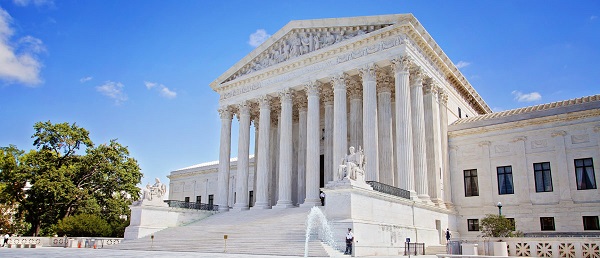Daily Caller
Democrat Governors, City Leaders Pledge To Shield Illegal Immigrants From Trump’s Agenda

 From the Daily Caller News Foundation
From the Daily Caller News Foundation
By Jason Hopkins
Democratic governors and other liberal elected officials have lined up to declare that they will fight back against President-elect Donald Trump’s hardline immigration agenda.
Trump, who won the election on Tuesday in an electoral landslide, has promised to conduct mass deportations across the country and withhold federal funding from sanctuary cities, along with a slate of other hawkish enforcement proposals. However, Democratic governors in Massachusetts, California and Illinois — all of whom have been speculated as potential 2028 presidential contenders — and other elected leaders have said they will use their authority to push back against the upcoming administration’s agenda.
“I think that the key here is that every tool in the toolbox has gotta be used to protect our citizens, to protect our residents and protect our states, and certainly to hold the line on democracy and the rule of law as a basic principle,” Massachusetts Gov. Maura Healey said to MSNBC host Lawrence O’Donnell after Trump’s victory. Healey confirmed that Massachusetts State Police would “absolutely not” be helping the Trump administration deportation plans.
The entire state of Massachusetts is already described as a “sanctuary” haven by the Center for Immigration Studies (CIS), a Washington, D.C.-based group that tracks sanctuary laws and policies across. Healey’s reluctance to help the incoming administration’s enforcement efforts follows her state’s struggles with the ongoing immigration crisis, having publicly asked illegal immigrants to not go to her state and offered plane tickets for them to leave.
California Gov. Gavin Newsom on Thursday called for a special session of the state legislature in order to “protect California values” from the incoming Trump administration.
“The special session will focus on bolstering California legal resources to protect civil rights, reproductive freedom, climate action, and immigrant families,” a statement from the governor’s office reads. “On immigrant protection, California has advanced policies that support immigrant families and is investing in their protection.
Like Massachusetts, the entire state of California is also deemed a “sanctuary” jurisdiction for statewide policies that forbid cooperation between local law enforcement officials and Immigration and Customs Enforcement (ICE). Newsom’s office told The Associated Press that the upcoming special session for lawmakers will help “Trump-proof” the state’s laws.
In addition to conducting the “largest deportation program in American history,” Trump has also said he would end birthright citizenship for those born on American soil by illegal migrant parents, bring back the Remain in Mexico program, hire more Border Patrol agents and establish a compensation fund for victims of migrant crime.
The president-elect announced late Sunday he was picking former ICE acting director Tom Homan to be the border czar in the new administration, making clear the upcoming administration will be adopting a tough stance on enforcement.
“To anyone who intends to come take away the freedom and opportunity and dignity of Illinoisans, I would remind you that a happy warrior is still a warrior,” Illinois Gov. JB Pritzker said during a press conference after Trump’s victory. “You come for my people, you come through me.”
Pritzker said that Illinois will remain a sanctuary state and vowed to take the Trump administration to court if it attempts to withhold federal funds over the issue. The president-elect has pledged to force sanctuary cities to cooperate with immigration authorities by stripping them of federal public safety grants.
Numerous local Democratic elected officials have also signaled that they will do what they can to stymie the president-elect’s immigration agenda, with several members of the Los Angeles City Council saying that they will fast-track the passage of a sanctuary city ordinance, according to the LA Times. The legislation, which is still under review by city attorneys, would prohibit federal immigration enforcement officials from accessing Los Angeles’ databases.
A spokesperson for Los Angeles Mayor Karen Bass did not immediately respond to a request for comment when asked by the Daily Caller News Foundation if she would support the bill.
Many liberal organizations have also declared they are ready and waiting to fight the Trump administration tooth and nail, including the American Civil Liberties Union (ACLU), which has filed over 400 legal actions against Trump and his previous administration since 2016, with a large portion of them targeting immigration directives from Trump’s first term.
“Starting on day one, we’re ready to fight for our civil liberties and civil rights in the courts, in Congress, and in our communities,” the organization stated after Trump’s election victory. “We did it during his first term — filing 434 legal actions against Trump while he was in office — and we’ll do it again.”
conflict
‘They Don’t Know What The F*ck They’re Doing’: Trump Unloads On Iran, Israel


From the Daily Caller News Foundation
President Donald Trump expressed frustration Tuesday after Iran broke a ceasefire, prompting retaliation from Israel during a gaggle with reporters on the White House lawn.
Trump announced the ceasefire Monday, saying it was supposed to take effect at 1 a.m. Eastern Daylight Time, but Iran fired missiles at Israel Tuesday. Trump vented, saying the countries had been “fighting so long” they couldn’t make peace.
WATCH:
“You know, when I say okay, now you have 12 hours, you don’t go out in the first hour just drop everything you have on them,” Trump said. “So I’m not happy with them. I’m not happy with Iran either. But I’m really unhappy if Israel is going out this morning because the one rocket that didn’t land, that was shot, perhaps by mistake, that didn’t land, I’m not happy about that.”
“We basically have two countries that have been fighting so long and so hard, that they don’t know what the fuck they are doing,” Trump added.
The United States struck facilities in Fordow, Natanz and Isfahan related to Iran’s effort to develop nuclear weapons early Sunday morning local time, using as many as 14 GBU-57 Massive Ordnance Penetrators in the operation, which involved a 37-hour flight by seven B-2A Spirit bombers.
The American strikes came ten days after Israel launched a military operation targeting the Iranian nuclear program. Iran has responded with repeated missile attacks on Israeli cities and a refusal to resume negotiations over its efforts to pursue nuclear weapons.
Automotive
Supreme Court Delivers Blow To California EV Mandates


From the Daily Caller News Foundation
“The Supreme Court put to rest any question about whether fuel manufacturers have a right to challenge unlawful electric vehicle mandates”
The Supreme Court sided Friday with oil companies seeking to challenge California’s electric vehicle regulations.
In a 7-2 ruling, the court allowed energy producers to continue their lawsuit challenging the Environmental Protection Agency’s decision to approve California regulations that require manufacturing more electric vehicles.
“The government generally may not target a business or industry through stringent and allegedly unlawful regulation, and then evade the resulting lawsuits by claiming that the targets of its regulation should be locked out of court as unaffected bystanders,” Justice Brett Kavanaugh wrote in the majority opinion. “In light of this Court’s precedents and the evidence before the Court of Appeals, the fuel producers established Article III standing to challenge EPA’s approval of the California regulations.”
Kavanaugh noted that “EPA has repeatedly altered its legal position on whether the Clean Air Act authorizes California regulations targeting greenhouse-gas emissions from new motor vehicles” between Presidential administrations.
“This case involves California’s 2012 request for EPA approval of new California regulations,” he wrote. “As relevant here, those regulations generally require automakers (i) to limit average greenhouse-gas emissions across their fleets of new motor vehicles sold in the State and (ii) to manufacture a certain percentage of electric vehicles as part of their vehicle fleets.”
The D.C. Circuit Court of Appeals previously rejected the challenge, finding the producers lacked standing to sue.
“The Supreme Court put to rest any question about whether fuel manufacturers have a right to challenge unlawful electric vehicle mandates,” American Fuel & Petrochemical Manufacturers (AFPM) President and CEO Chet Thompson said in a statement.
“California’s EV mandates are unlawful and bad for our country,” he said. “Congress did not give California special authority to regulate greenhouse gases, mandate electric vehicles or ban new gas car sales—all of which the state has attempted to do through its intentional misreading of statute.”
-

 Business2 days ago
Business2 days agoLatest shakedown attempt by Canada Post underscores need for privatization
-

 Business2 days ago
Business2 days agoWhy it’s time to repeal the oil tanker ban on B.C.’s north coast
-

 Aristotle Foundation2 days ago
Aristotle Foundation2 days agoHow Vimy Ridge Shaped Canada
-

 Alberta2 days ago
Alberta2 days agoPierre Poilievre – Per Capita, Hardisty, Alberta Is the Most Important Little Town In Canada
-

 MxM News2 days ago
MxM News2 days agoUPenn strips Lia Thomas of women’s swimming titles after Title IX investigation
-

 Alberta1 day ago
Alberta1 day agoAlberta Provincial Police – New chief of Independent Agency Police Service
-

 International2 days ago
International2 days agoCBS settles with Trump over doctored 60 Minutes Harris interview
-

 Energy2 days ago
Energy2 days agoIf Canada Wants to be the World’s Energy Partner, We Need to Act Like It






